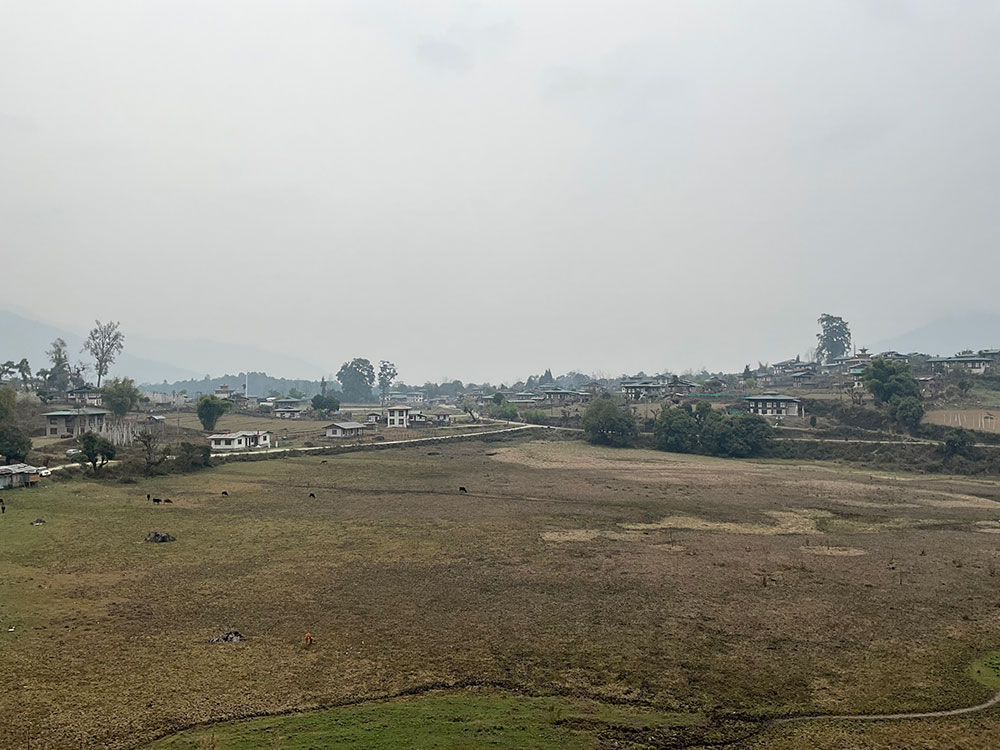…homestay operators request a revision in rates
Lhakpa Quendren
Buli—Five years ago, Tshering Youden, a 61-year-old from Buli in Nangkor hesitantly ventured into the homestay business, uncertain about its prospects. Today, her homestay is the primary income source for her family.
In the first three months of this year, she has already hosted about 60 guests, with most of the pilgrims staying for a night, while some official visitors extended their stay to over a week.
Tshering Youden earned over Nu 100,000 from her homestay business in 2023. Her property with six rooms can accommodate about 20 individuals a night.
The Nangkor Gewog Administration proposed to the tourism department to start homestay businesses in the community. However, not many were interested, and in some cases, gewog officials had to insist on their participation, according to homestay owners.
“Uncertain and fearful of the homestay venture due to lack of knowledge, I hesitated to start. Upon leaving the discussion while others stayed, a Panbang official, aware that I had expanded my house, encouraged me,” said Tshering Youden.
Buli, once a hidden gem, has now become a vibrant hub for tourism, with its homestays at the forefront of this flourishing industry. With the increasing number of pilgrims visiting sacred sites like Buli Moenmo Lake, Dungkar Nye, and Chenrezig Drupchhu, the homestay business in Buli thrives with promising economic prospects.
With no commercial lodging facilities in the locality, officials and visitors have to stay at the homestays. Many pilgrims from all over the country visit on weekends, during government holidays, and in the winter.
Today, as homestay services are widely recognised, visitors contact them directly to enquire about rates and booking. Additionally, those who have previously stayed help promote the facility.
In Buli, Tshering Youden and Tshewang Bhutri Village Homestays are the two oldest service providers and among the four certified homestays recognised by the tourism department.
Tshewang Bhutri Village Homestay hosted about 400 local visitors and 15 international tourists last year alone, contributing about Nu 400,000 in income.
The owner, 30-year-old Sonam Yangden Dorji, said that the number of visitors has been increasing since last year. “Some travel agents also send their tourists, and the business is thriving year by year.”
With the homestay business and a restaurant, her five years of experience working in a tourist hotel added value to her businesses. She holds a diploma in hotel management from the Royal Institute for Tourism and Hospitality (RITH) obtained in 2014.
Another homestay owner, Phuntsho Dendup, 64, earns a monthly income of Nu 20,000. “Sometimes we receive 30 to 40 guests in a month, but there are also times when we do not receive a single guest.”
“When I am away from home and receive booking calls, I refer them to other homestays,” he added. “I also share guests with other homestays when I have more visitors at a given time.”
The thriving business has inspired 13 others to embark on the venture. While they equally benefit from local pilgrims, they are unable to host international tourists due to their homestays not being certified.
The homestay charges Nu 900 per person per night for local visitors, a rate set by the tourism department. This includes a complimentary welcome tea and three meals. However, some homestays offer a reduced rate of Nu 500 per person for students and those booking only accommodation without meals.
While the cost of essential items has increased and salaries have been revised, homestay owners say there is a need to consider revising their rates as well. However, as some uncertified homestays charge between Nu 500 to Nu 750 per person per night, others fear losing their guests.
Sonam Yangden Dorji said that some guests, especially those who are employed, recommend them to increase their rates. “Some even pay more than our standard rate, saying that the current rate is too low for the services provided.”
With support from the WWF Bhutan Program, the Zhemgang Divisional Forest Office constructed a visitor information center and community hall for recreation and meditation (Choekhang), a cantilever bridge, and a waste disposal shed at Dungkar Nye.
Dungkar Nye is located 1.2km from the nearest road point, which takes an hour on foot. The narrow trail becomes muddy during the monsoon season, which requires maintenance.
Located about 5km south of Nangkhor Gewog center and a 20-minute drive from Buli village, Buli Tsho (lake) sits at over 1,300 meters above sea level.


